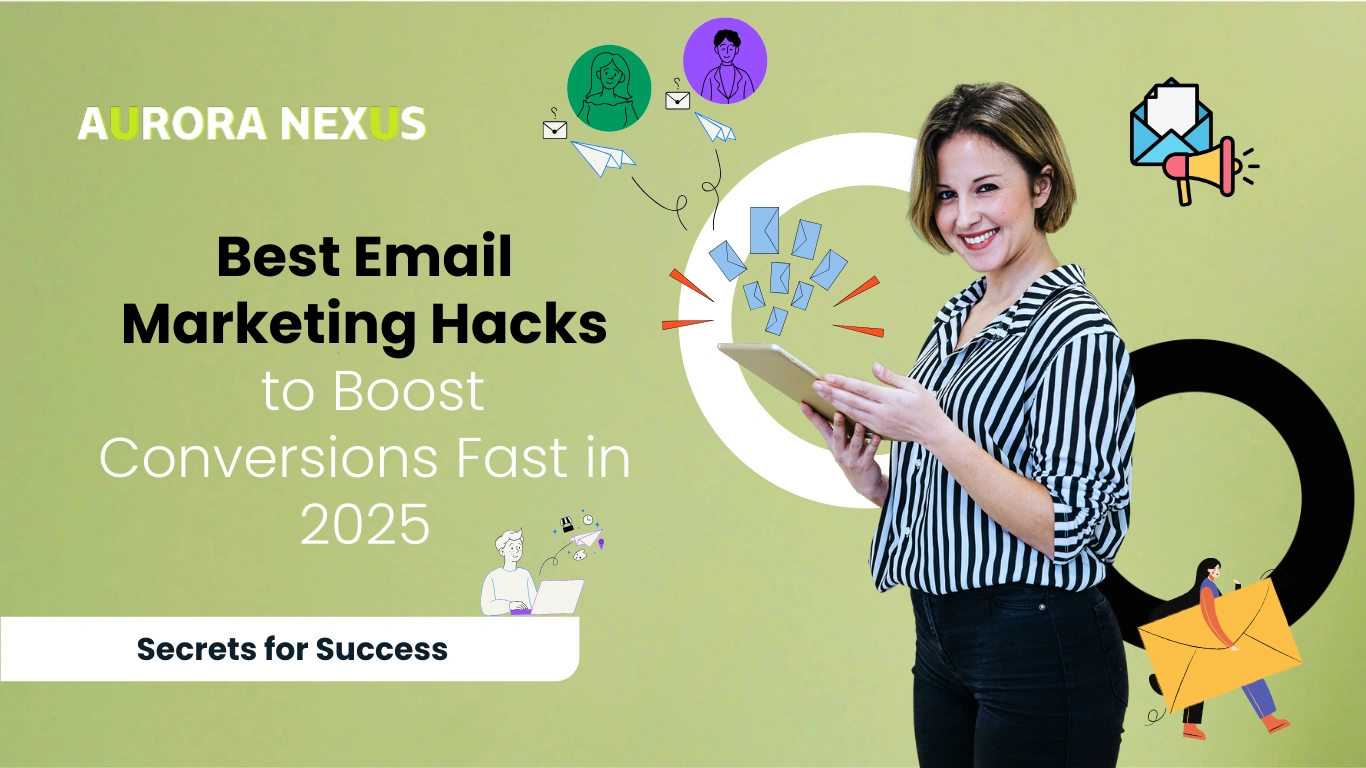Running a real estate business means juggling multiple moving parts, leads, listings, clients, contracts, and compliance. Without the right tools, this often results in wasted time, missed opportunities, and unnecessary stress.
That’s where CRM and MLS management come in. By connecting your real estate CRM with MLS integration, agents can access live listing data, manage client interactions, and automate follow-ups in one place. No more switching between systems or worrying about outdated property information.
With CRM and MLS integration, you can:
Centralize your client and property data.
Automate alerts, workflows, and follow-ups.
Stay MLS-compliant without extra manual work.
Close more deals with less effort.
This guide will break down the challenges agents face, how CRM with MLS integration solves them, and the steps you can take to scale your real estate business with confidence.
The Challenges Agents Face Without CRM and MLS Integration

Real estate is a fast-moving business, and every minute counts. Yet many agents still work with fragmented systems, one for their CRM, another for the MLS, and sometimes even spreadsheets in between. This leads to frustration, extra work, and lost opportunities.
Here are the most common struggles when CRM and MLS aren’t connected:
Lost Leads and Missed Follow-Ups
Without real estate CRM MLS integration, it’s easy for new inquiries from Zillow, Realtor.com, or your MLS to slip through the cracks. Leads go stale, response times drag, and conversion rates drop.Duplicate Data and Confusion
Agents often enter the same property or client information into multiple systems. This creates duplicate records, errors in client profiles, and wasted time fixing data instead of closing deals.Slower Deal Cycles
When property updates (like price changes or status updates) don’t flow directly into your CRM, you risk giving clients outdated information. A few minutes of delay can mean losing trust or even losing the deal.Compliance Risks
MLSs have strict rules for data use and property display. Without MLS compliance features built into your CRM, you run the risk of accidental violations that can cost money and damage your reputation.Manual Work Overload
Updating listings, sending property alerts, and tracking buyer activity manually is not only exhausting but also prone to human error. This is time better spent prospecting and closing.
In short, running separate systems for CRM and MLS keeps agents stuck in admin work instead of focusing on what really matters: building relationships and closing deals.
Also Read: How an Administrative Virtual Assistant Can Help You Grow Faster
How CRM and MLS Management Solves These Problems
A well-integrated CRM and MLS management system changes the game for real estate agents. Instead of switching between platforms or relying on manual updates, you get one connected ecosystem where every client and every listing stays in sync.
Here’s how integration makes your workflow easier:
Centralized Client & Property Data
Your real estate CRM with MLS integration brings together all client details, property preferences, and MLS listings in one dashboard. This eliminates the need for duplicate data entry and ensures your team is always working with the most accurate information.Automated Lead Capture & Follow-Up
Leads from your website, MLS, or property portals flow directly into your CRM. Automated workflows trigger instant follow-ups, property alerts, and reminders, helping agents respond faster and increase conversions.Real-Time MLS Updates
With live MLS synchronization, every price change, status update, or new listing appears instantly in your CRM. This means agents can confidently share accurate property information with clients, building trust and closing deals faster.Built-In MLS Compliance
The best CRM MLS solutions ensure your property data is displayed according to MLS rules. This keeps your business compliant without extra work or fear of penalties.Time-Saving Automation
From scheduling property showings to sending market updates, automation frees up hours of manual work each week. Instead of chasing admin tasks, agents can focus on client relationships and negotiations.Improved Team Collaboration
When everyone works from the same system, teams stay aligned. Whether you’re managing a solo practice or a full brokerage, integrated CRM and MLS tools help keep communication and task management seamless.
In short, CRM & MLS management is not just a convenience, it’s a competitive advantage. It transforms how agents handle listings, clients, and transactions, allowing them to work smarter and scale faster.
Key Features to Look for in CRM and MLS Management Tools

Not all CRM MLS integration platforms are created equal. To truly boost productivity and client satisfaction, you’ll want to choose a solution that offers more than just basic contact management. Here are the features every real estate professional should look for:
Seamless MLS Integration
The system should connect directly with your local MLS to pull in live property data. Look for real-time synchronization so every listing update is reflected instantly in your CRM.Automated Lead Management
A powerful real estate CRM with MLS integration should capture leads from websites, social media, and property portals automatically. From there, it should trigger workflows like assigning leads, scheduling follow-ups, or sending property matches.Advanced Search & Property Matching
Clients expect personalized recommendations. Choose a CRM that lets you filter MLS listings by location, budget, and preferences, then match them with the right buyers. This creates a better client experience and helps close deals faster.Email & SMS Campaigns
Integrated marketing tools allow you to send automated property alerts, drip campaigns, and follow-up reminders. Having this built directly into your CRM MLS system saves time and ensures consistent client communication.Task & Workflow Automation
From assigning leads to tracking showing requests, automation is key. This keeps agents focused on high-value tasks instead of repetitive admin work.Mobile Access
Real estate happens on the go. Look for CRM platforms with mobile apps that let you check MLS data, update notes, and respond to clients anytime, anywhere.Analytics & Reporting
The best systems provide insights into lead sources, property views, and conversion rates. With these reports, you can see what’s working, adjust strategies, and prove ROI.MLS Compliance Controls
Ensure your CRM helps maintain MLS rules for property display, branding, and syndication. Compliance features reduce risk and protect your business.
By prioritizing these features, agents can choose a CRM MLS management solution that’s not just functional but also future-ready, supporting long-term growth and smoother operations.
Benefits of CRM and MLS Management for Real Estate Professionals

When you bring CRM and MLS management together, the impact on your real estate business goes beyond convenience it transforms how you work, connect with clients, and close deals. Here’s why it matters:
1. Save Hours Every Week
Manual data entry, toggling between platforms, and updating property information are time-drainers. With CRM MLS integration, listings and client records sync automatically, freeing up hours for revenue-generating activities.
2. Never Miss an Opportunity
Automated lead capture and follow-ups ensure that no prospect slips through the cracks. A real estate CRM with MLS integration keeps your pipeline organized and responsive.
3. Deliver a Better Client Experience
Imagine sending buyers real-time property alerts that perfectly match their needs. With MLS CRM tools, you can personalize recommendations and wow clients with fast, accurate service.
4. Stay Organized & Compliant
All contacts, deals, and listings live in one secure system. This centralization makes compliance easier, reduces errors, and keeps you MLS rule-ready at all times.
5. Boost Closing Rates
By streamlining the process from lead to transaction, CRM MLS management helps agents move prospects through the pipeline faster, leading to more signed contracts and satisfied clients.
6. Gain Business Insights
Built-in analytics reveal where leads come from, which campaigns perform best, and how your listings are engaging clients. These insights give agents the power to make data-driven decisions for growth.
In short, MLS CRM solutions are more than just a convenience; they’re a competitive advantage in today’s fast-paced real estate market.
Also Read: Smarter Business Decisions with Virtual Assistant Data and Reporting Support
How CRM and MLS Integration Improves Lead Management and Sales
In real estate, speed and accuracy often decide who wins the client. That’s where CRM and MLS management give agents an edge it doesn’t just organize data; it supercharges your lead-to-close process.
1. Smarter Lead Capture
Instead of juggling spreadsheets or disconnected tools, all your leads, whether from your website, MLS, or social media, flow straight into your real estate CRM with MLS integration. This means every inquiry is logged, tracked, and ready for immediate follow-up.
2. Automated Lead Nurturing
With automated workflows, your CRM can send property alerts, appointment reminders, and personalized updates. Prospects feel like you’re always available, even when you’re closing deals elsewhere.
3. Prioritized Opportunities
Not all leads are equal. A strong MLS CRM system helps you score and segment prospects, so you know who’s ready to buy, who needs nurturing, and who might be a long-term client.
4. Faster Response Times
Clients expect real-time updates. With MLS synchronization, agents can instantly share accurate property details like price changes or new listings, building trust and increasing chances of a sale.
5. Streamlined Sales Pipeline
Your pipeline becomes a visual, easy-to-manage process. From the first inquiry to the signed contract, every step is tracked inside the CRM, reducing dropped opportunities and helping you close deals faster.
When done right, CRM MLS integration isn’t just a back-office tool, it’s a sales accelerator that keeps agents ahead of the competition.
Choosing the Right CRM and MLS Management Software

With so many options out there, picking the best CRM and MLS management software can feel overwhelming. The right platform should simplify your workflow, boost sales efficiency, and grow with your business. Here’s what to look for:
1. Seamless MLS Integration
Make sure the CRM connects smoothly with your local MLS. A reliable MLS-integrated CRM keeps property data up to date automatically, so you don’t waste time on manual updates.
2. Ease of Use
Agents shouldn’t need a tech degree to use their tools. Look for an interface that’s intuitive, mobile-friendly, and easy to train your team on.
3. Customization Options
Every real estate business is different. The best CRM for real estate professionals lets you customize fields, workflows, and reporting to match your exact needs.
4. Lead Management Features
From automated lead capture to advanced lead scoring, your CRM should help you prioritize hot opportunities and keep your pipeline flowing.
5. Marketing Automation
Email drip campaigns, property alerts, and personalized outreach are must-haves. A strong CRM MLS solution should do the heavy lifting of nurturing clients while you focus on closing.
6. Reporting & Analytics
Data is power. Choose a system that gives clear insights into your leads, conversions, and property performance so you can refine your strategy over time.
7. Scalability
Your business will grow and your tools should grow with you. The right real estate CRM software should support teams of any size, from solo agents to large brokerages.
In short, don’t just look for a CRM, look for a complete MLS CRM management system that fits both your current workflow and your long-term growth goals.
Also Read: How Trusted Virtual Assistants Keep Real Estate Transactions Secure and Compliant in 2025
Best Practices for CRM and MLS Management
Simply having a CRM with MLS integration isn’t enough. To get the full value, you need the right practices in place. Here are some proven strategies that top-performing real estate professionals use:
1. Keep Data Clean and Updated
Regularly check your CRM to ensure client details, MLS listings, and transaction data are accurate. Clean data means fewer errors and smoother client interactions.
2. Automate What You Can
Leverage automation features for lead follow-ups, property alerts, and appointment scheduling. This not only saves time but ensures no lead slips through the cracks.
3. Use Tags and Segmentation
Group your leads by categories such as buyers, sellers, investors, or renters. A well-organized real estate CRM system makes it easier to deliver the right message to the right client at the right time.
4. Integrate with Other Tools
Don’t let your CRM operate in isolation. Connect it with your email marketing software, social media platforms, and transaction management tools to create a seamless workflow.
5. Monitor Analytics and Reports
Review your dashboards weekly. Look at metrics like lead response time, conversion rates, and property performance. These insights will help you refine your approach and close more deals.
6. Train Your Team
A CRM MLS management system is only as good as the people using it. Provide regular training to ensure everyone on your team knows how to maximize the software’s features.
By following these practices, you’ll transform your CRM from just a digital filing cabinet into a powerful real estate productivity tool that drives measurable results.
Future of CRM and MLS Management in Real Estate

The real estate industry is evolving rapidly, and so are the tools that support it. The future of CRM and MLS management is all about smarter automation, better integration, and a more personalized client experience.
1. AI-Powered Lead Nurturing
Expect to see more AI-driven CRMs that analyze client behavior and suggest the best next steps. These systems will help agents predict buying intent, send hyper-personalized messages, and close deals faster.
2. Deeper MLS Connectivity
Tomorrow’s MLS-integrated CRMs will offer real-time syncing with more advanced filters, giving agents instant access to the latest property data without ever leaving their dashboard.
3. Mobile-First Experience
As agents spend more time on the go, mobile CRM apps will become the norm. Everything from MLS searches to contract management will be available from a smartphone.
4. Virtual & Augmented Reality Integration
Future CRMs may link with VR/AR tools, letting clients preview homes virtually while the system tracks engagement data for smarter follow-ups.
5. Predictive Analytics
Advanced real estate CRM software will do more than report past performance it will forecast market trends, pricing shifts, and client needs, empowering agents to act proactively.
6. All-in-One Ecosystems
Instead of juggling multiple apps, expect CRM MLS management platforms to evolve into full ecosystems handling leads, listings, marketing, contracts, and accounting in one place.
In short, the future is clear: the agents who adopt these technologies early will gain a strong competitive edge, delivering faster, smarter, and more personalized client experiences.
Conclusion: Take Control of Your Real Estate Workflow
Managing clients and properties without the right tools can feel overwhelming. That’s why CRM and MLS management has become a game-changer for modern real estate professionals. From streamlining lead generation to simplifying transactions, an integrated system ensures you spend less time on manual work and more time closing deals.
The key is choosing a solution that fits your workflow, automates routine tasks, and keeps your data organized. Whether you’re a solo agent or leading a team, the right real estate CRM with MLS integration can unlock new levels of productivity and client satisfaction.
At Aurora Nexus, we specialize in helping real estate agents harness the power of virtual assistants and technology to optimize every stage of their business. From CRM setup and MLS management to lead nurturing and transaction support, our dedicated team ensures your system works for you not the other way around.
👉 Ready to simplify your workflow and scale your real estate business?
Get in touch with Aurora Nexus today and discover how our real estate virtual assistant services can transform the way you work.



